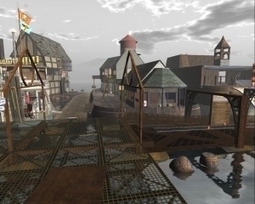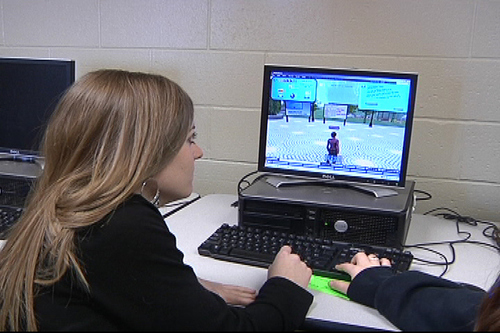If I could find something about vampires or Alice in Wonderland I think this build would manage to incorporate most of the major themes we love inworld. It might sound a little strange, and it could be that the owners would describe it differently, but I think this combination works and it’s a great place to visit.
My journey began today with this photo↑ by LookatmyBack. I know he likes steampunk so I thought I’d check out the region and see what was there.










Recent Comments